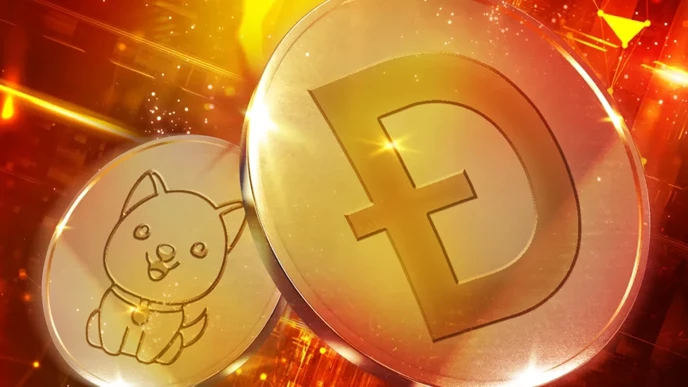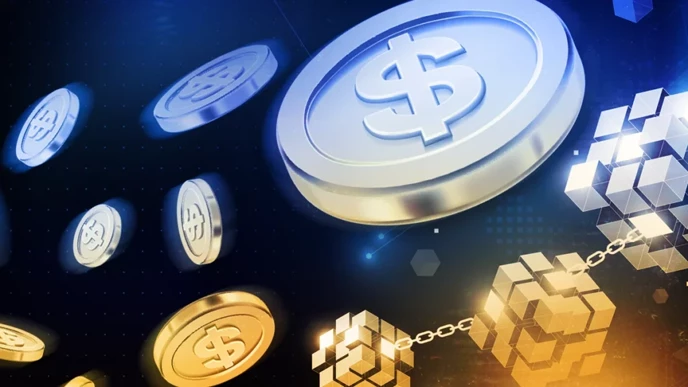What Is the Difference Between a Token vs Coin? Which Is Better?

We tend to use Coins and Tokens interchangeably when it comes to crypto investing. One could argue they were the same back when there were just a dozen coins in 2013, but there’s now more than 23,000 and the difference between a token vs coin is more important than ever.
While every coin could be a token, not every token is a coin. There's a good chance that less than 10% are actual currencies, let alone valuable. There are also multiple types of both tokens and coins.
Knowing the coin vs token difference will help you diversify your crypto portfolio, know when to use them, and find the ones you're missing out on.
Quick Takes:
- Coins generally have their own blockchains. Their primary use is monetary, although they can have more (like Ethereum). Coin value scales with adoption, and popular tokens sometimes become coins.
- Tokens "live" in other cryptocurrencies' blockchains. Unlike coins, they can belong to multiple networks, and they're synonymous with utility.
- Coins are about payments and investment value. Tokens are about digital goods and services.
Coin And Token Definitions
Coins and tokens aren't new concepts in crypto. They're both units of measurement used on financial platforms. The difference is in what they measure, and how we use them.
Coins are currencies and money systems that facilitate trade. People use coins because they have stable prices relative to others, which allows them to set consistent good prices and store value. Coins gain value the more people use them, and they do because of stability and convenience.
Note: the word "use" here is important. "Buying" currency doesn't make sense (except when trading), because they're not investments. That opposes the typical connotation of cryptocurrencies as securities. At least governments don't recognize them as such.
Now, cryptocurrencies are different from traditional coins in that they're tied to a payment system. Bitcoin is both the currency and payment method (AKA blockchain). By contrast, the dollar is a fiat currency that doesn't have a native payment method.
What about tokens?
Tokens are monetary units linked to utility and are dependent on coins (which are true cryptocurrencies). We trade tokens using the payment method of the underlying coin, which is also the unit that measures the token price. For example:
- Uniswap is a Decentralized Exchange (DEX) and utility token (UNI)
- UNI is one of the tokens created on the Ethereum blockchain. Its cryptocurrency or coin is called Ether (ETH)
- To trade UNI tokens, you need to use the Ethereum blockchain and ETH tokens (for gas fees)
In this example, ETH and UNI are the coin and token respectively. The purpose of ETH is to provide the exchange method and monetary unit. The purpose of UNI is to use the exchange. Coin vs token is currency vs utility.
Differences Between Tokens vs Coins

By now you might have noticed some differences:
- Coins are tied to blockchains. Tokens are tied to platforms and belong to blockchains.
- Coins have money utility. Tokens have platform utility.
- Coins set relative prices (e.g., 1 ETH is worth $2,000) based on stability and adoption. Tokens set cryptocurrency prices (e.g., 1 ETH equals ~210 UNI) based on utility.
These dependencies create a symbiotic relationship because:
- Great blockchains (or coins) gain adoption from users and token developers.
- The more tokens and platforms there are, the more things you can exchange coins for.
- The higher the coin price, the higher the utility token (whether it's a great project or not)
The biggest difference between both units is utility, and it's not as simple as it seems. Both coins and tokens have utility. It doesn't mean that coins can't be multi-purpose (like Ethereum, often confused as a utility token).
It means the primary coin utility is the medium of exchange. In 2022, you can't buy tokens unless you first buy coins and exchange them. You might trade dollars for tokens on an exchange or peer-to-peer platform, but they still had to buy them with coins (e.g., ETH for UNI).
As for token utility, it's primarily financial:
- Use lending/liquidity tools to earn interest rewards
- Invest in real companies, not just blockchain projects
- Expand payment utility of coins
- Buy digital assets (NFTs)
- Buy tokenized versions of real-world currencies (stablecoins)
- Buy tokenized coins that don't exist on your network (e.g., wBTC on Ethereum)
A good financial layer brings use cases like:
- Proof of ownership: for intellectual property, trademarks, real estate...
- Digital economies: crypto-only business models, Metaverse games...
- Shared governance: decentralized autonomous organizations (DAOs), token-based voting...
Thus, you don't necessarily want to convert crypto for fiat. Tokens are the end in themselves, and coins are the means.
Similarities Between Tokens vs Coins
In theory, coins are currencies, and tokens are "tokenized" digital goods and services. In practice, it's not black and white. We use both interchangeably because tokens can become coins, and coins can have token variations.
Examples of these are:
- Bitcoin-pegged coins like wBTC. Bitcoin is the coin that holds value. But BTC isn't supported on every blockchain. That's the utility of wBTC, which is a token programmed to equal Bitcoin's price.
- Fantom (FTM) started as a DeFi utility token in 2018. Its blockchain launched in 2019, and developers started using it as a currency for Fantom applications. It became a coin.
Out of all tokens, DeFi-related ones are more likely to become coins because of their countless use cases. Almost every application or sector needs a financial layer. And as they become more secure and liquid, they can become blockchains to host decentralized applications (dApps). Or as an alternative, replicate the token on as many blockchains as possible.
Tokens can also behave as currency alternatives. In Ethereum, for example:
- An NFT marketplace could set prices with the ERC-20 token USDT (Tether/dollar).
- A Metaverse token can be a currency for the in-platform economy.
Both would still use the Ethereum network and pay fees in Ethereum. Which begs the question...
Do we need utility tokens? Can't we use coins directly?
Indeed. For example, Opensea is the biggest NFT marketplace and doesn't have a token. Uniswap is the best-known Ethereum exchange and neither had one at first. You can create a high-utility dApp without a token (and unless it's required for liquidity, most dApps shouldn't have one).
Now, if platform tokens don't necessarily mean utility, and they're neither coins, what are they? And if a coin isn't a store of value, is it still a coin?
They are alternative types of tokens and coins.
Types of Cryptocurrency: Difference Between a Coin and Another
Is buying Bitcoin the same as buying Ethereum, Monero, or Dogecoin? You see, the most popular cryptocurrencies often have nothing in common. Some are more volatile, and other coins don't even have blockchains.
The are four types of cryptocurrency, from more to less common:
- Store-of-value coins are almost exclusively a medium of exchange and wealth preservation. We buy Bitcoin because it's stable or goes up long-term, and many users/businesses accept it as payment. Litecoin and Dash are other examples.
- Utility coins have their own blockchains, unlike tokens. Utility varies by project, which could be dApp development (Ethereum, Binance, Avalanche...), scalability/efficiency (Polygon, Optimism, Arbitrum...), or privacy (Monero). While they're used as currencies, the adoption of these networks depends on utility.
- Memecoins are typically coins with high token supply, speculative prices, and no special utility. Most memecoins are tokens (Shiba Inu, Dogelon Mars, Apecoin) built on Ethereum. Dogecoin is the only memecoin that has a blockchain.
- Fork coins are variations of any previous group (except for useless memecoins). Forks are alternative blockchains with different features, code tweaks, and coins. For example, Pulsechain (PLS) is the latest Ethereum fork that has the same tokens and is four times more efficient. Bitcoin fork examples are Ravencoin and Lightning Network.
Now, if you wanted to create a token, which of the four would you choose?
Memecoins don't have blockchains, and forks are variations of the first two. Store-of-value coins don't have tokens because their only purpose is monetary. That leaves us with utility coins (e.g., PLS), the only cryptocurrency that makes all tokens possible.
Types of Tokens: Difference Between a Token and Another
Regardless of what tokens do, their utility is attached to a dApp (e.g., PLSX to PulseX, LOAN for Liquid Loans...). Outside their platforms, tokens act like currencies and don't have any utility. And to connect to dApps, you need a decentralized wallet like Metamask (learn more about that here).
Important! If you hold any token in custodial wallets (like Coinbase Exchange), that custodial party is getting all the benefits, not you. You need non-custodial wallets both to access and benefit from utility tokens. Some services are "free," like staking LOAN tokens to earn fee revenue on LiquidLoans.
Now, while there's no official token classification, there are at least six different classes:
- Utility tokens are the broadest category. If you think of dApps as businesses, the token value is about the software or service. And while most are DeFi-related (like PLSX or LOAN), there are many others (like Orchid for VPNs, DENT for mobile data, FileCoin for storage, ANKR for websites...).
- Governance tokens are a control tool that controls how much decision power users have. The more tokens, the easier it is to change the dApp as you like. For example, Uniswap members stake UNI tokens to decide whether to change fees, add to more networks, or approve grant proposals.
- Liquidity-pool tokens are a "receipt" for the funds you stake in a protocol or exchange. For example, if you deposit ETH and USDT to a Uniswap liquidity pool, you get ETH-USDT "LP" tokens. Other than redeeming funds, they can earn fee revenue and interest rewards.
- Security tokens represent ownership like company shares, which might include dividends, voting rights, and other privileges. While you can't own a decentralized organization, you can own tokenized stocks of traditional companies. DeFiChain includes tech giants like Microsoft (DMSFT), Netflix (DNFLX), and Amazon (DAMZN).
- Non-fungible tokens (NFT) represent ownership of assets instead. Because they're unique and verifiable on the blockchain, any digital asset can be backed by cryptocurrency. There are thousands of NFTs on marketplaces like Opensea or MagicEden.
- Fan tokens offer membership benefits. Users support their favorite artists/bands/sports teams in exchange for exclusive content, prizes, and voting on some decisions. Tokens could be "fan NFTs" (e.g., a golden concert ticket to get a lifetime 50% discount).
FAQ
Is Bitcoin Coin or a Token? What about Bitcoin Cash, Gold, Wrapped...?
Bitcoin is a store-of-value coin. Not only is it a blue-chip cryptocurrency, but its only utility is monetary (unlike Ethereum). The same goes for BCH, BTG, and the other ~45 Bitcoin forks: coins, not tokens.
Wrapped Bitcoin (WBTC), Bitcoin BEP2 (BTCB), and other versions are pegged tokens. They all mirror its market value from BTC, and their utility is being able to buy Bitcoin on networks where it's not available. Hypothetically, if pegged tokens deviate over 5% for too long and can't equal 1 BTC, they could go to ~$0 overnight.
Is Ethereum Coin or a Token?
Ethereum is a coin like Bitcoin. It's not a store of value but a utility cryptocurrency (don't confuse with utility tokens). It's not a utility token because it has its own blockchain and a large app ecosystem that uses ETH to function. Utility comes from the applications and not Ethereum directly.
Ethereum-derived blockchains are also utility coins, and so are Ethereum Classic, Polygon, and Pulsechain.
Is CBDC a Coin or a Token?
Central Bank Digital Currencies don't really fit on either type. They use alternative blockchains that are public yet permissioned, so they're not cryptocurrencies. They're neither tokens because they're designed for monetary purposes and have their own blockchain.
They can be a coin variant or a third type called digital currency. And it's different from electronic money because its price and supply are independent (unpegged) from physical money.
Can a Token Become a Coin?
There are examples of tokens that became coins after getting enough adoption. The Crypto.com coin Cronos (CRO) started as an Ethereum token. Then it expanded to the Cosmos and Solana networks and eventually created the Cronos blockchain.
But just like blockchains need hundreds of nodes to be considered decentralized, tokens need several apps to be considered currencies. For example, both Cronos and Cardano have contracts and dApps, but there are so few users and developers that they could be both tokens or coins. Comparing these to Ethereum is like comparing Singapore to the USA.
Join The Leading Crypto Channel
JOINDisclaimer:Please note that nothing on this website constitutes financial advice. Whilst every effort has been made to ensure that the information provided on this website is accurate, individuals must not rely on this information to make a financial or investment decision. Before making any decision, we strongly recommend you consult a qualified professional who should take into account your specific investment objectives, financial situation and individual needs.

Connor
Connor is a US-based digital marketer and writer. He has a diverse military and academic background, but developed a passion over the years for blockchain and DeFi because of their potential to provide censorship resistance and financial freedom. Connor is dedicated to educating and inspiring others in the space, and is an active member and investor in the Ethereum, Hex, and PulseChain communities.

Development
Knowledge
Subscribe To Newsletter
Stay up-to-date with all the latest news about
Liquid Loans, Fetch Oracle and more.
Copyright © 2024 Crave Management.
All Rights Reserved.

The LL Librarian
Your Genius Liquid Loans Knowledge Assistant




